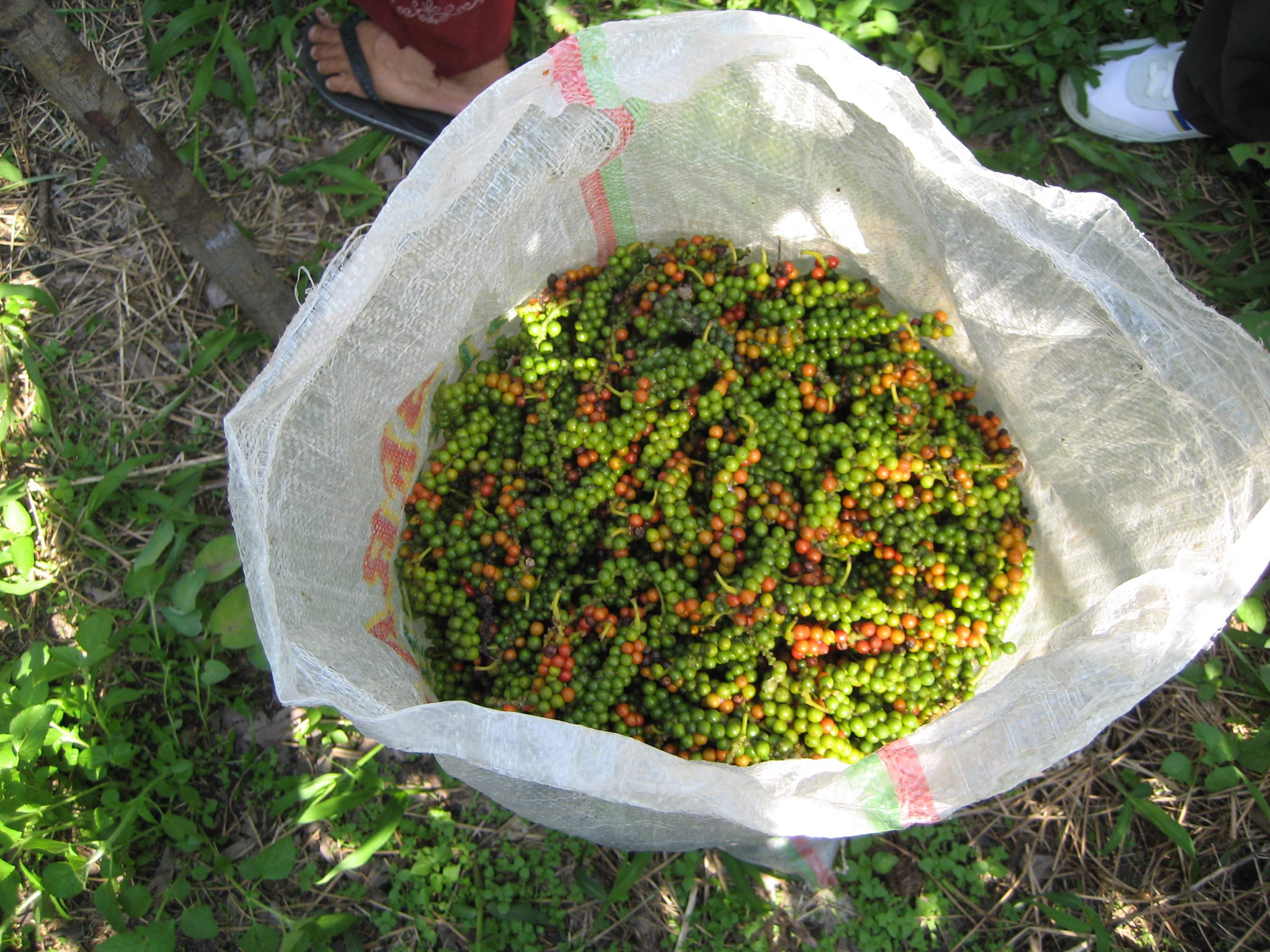SpiceUp
Improving productivity of Indonesian pepper farmers with SpiceUp app
> Download the SpiceUp project closure flyer
SpiceUp (Geodata for Sustainable Pepper Farming in Indonesia) aimed to create a commercially sustainable information service (mobile app) that helps pepper farmers boost their productivity, revenue, and food security, while optimising their water, fertiliser and pesticide inputs by the use of geodata. In addition to the mobile app, SpiceUp also developed a business-to-business (B2B) information management tool to improve transparency in the supply chain, reduce environmental impact and to support all stakeholders with data for their decision-making.
The project was carried out in the Indonesian provinces Bangka Belitung, Lampung and West Kalimantan.
The project lead, Verstegen Spices & Sauces BV from the Netherlands, owns and hosts the service with support from public-private Dutch and Indonesian partners.
Provided services
SpiceUp comprises the following services with farmer specific information: weather information, soil moisture information, market information (on current pepper prices), crop calendar tasks, a fertiliser calculator, extreme weather early warning (on drought and heavy rains), and pests and diseases early warning.
The weather information, soil moisture information, and market information in the application are directly sampled for each of the farmers individually from the sources in the data infrastructure (called Lizard). The crop calendar tasks and warning-based tasks related to geospatial data are derived from specific algorithms. These algorithms use data sources in the data infrastructure, sampled on a farmer’s location, and taking predefined variables as input. Based on these samples, Lizard calculates and defines which task should be given to the farmer and communicates this through an API.
The weather information, soil moisture information, and market information give the farmer insight into the current situation of their farm. The fertiliser calculator helps the farmer to quantify the suitable amount of fertiliser for their crop. The crop calendar tasks and warning-based tasks (both derived from geospatial data and reporting) give the farmer concrete advice on which actions they need to perform. When a farmer reports a pest or a disease, the data is stored and processed to issue warnings (pest/disease hotspot) to other farmers in the neighbourhood. Farmers also use the app to receive regular advice on good agricultural practices and to receive information on pepper market prices.
As a business-to-business service, SpiceUp designed a traceability system for pepper processors and pepper buyers, to tag every spice with detailed information on its journey from farm to table. In addition, SpiceUp provides management information for businesses to track farmer transactions, use of agricultural inputs, reported pests and diseases, and climatological risks.
Apart from the mobile app, SpiceUp also makes use of extension workers and social media as communication channels.
Demonstration plots of 0.2 hectare were established on farms owned by selected pepper farmers to apply the advice from the SpiceUp app and show the added value.
Although geodata plays a substantial role in SpiceUp, the use of Earth observation is limited. The soil moisture service that is based on satellite data turned out to be too costly for the intended use and the target farmers.

Business model
SpiceUp is still exploring the options for generating revenue and the optimal business models. For farmers a subscription or freemium model seems the most appropriate and other revenue can be generated through advertising and selling data and insights to food processors, dealers, NGOs, etc.
With Verstegen there is a business owner with a strong commitment to continue with service delivery, currently paying for maintenance of the service. Verstegen has an excellent brand name, a good corporate social responsibility practice and a strong local network. Other core partners of the consortium, such as ICCO (now Cordaid), Nelen & Schuurmans and IPB (Bogor Agricultural University) have expressed their support as well.
Impact
SpiceUp engaged in numerous outreach activities, including a television appearance, roadshows and webinars. Partnerships with ministries, local government and agribusinesses are established. SpiceUp has contributed significantly to awareness raising about the adoption of agricultural technology through digital marketing.
Although farmer retention is moderate, those who kept the app reported positive results. SpiceUp worked hard on making the app less complicated and introducing less features simultaneously to make the services more attractive. The need for direct personal advice and limited connectivity are still constraints.
Expanding to other crops and bundling with other services or existing services are identified as possible avenues to increase the impact of SpiceUp.
Partnership
Lead partner:
- Verstegen Spices & Sauce BV (Netherlands)
Partners:
- Akvo (Netherlands)
- Balittro (Indonesia)
- ICCO South East Asia (Netherlands/Indonesia)
- IPB (Indonesia)
- Nelen & Schuurmans (Netherlands)
- PT CAN (Indonesia)
- VanderSat, now part of Planet (Netherlands/US)
| Country | Indonesia |
| Services | Crop management adviceIrrigation adviceFertilizer adviceGood agricultural practicesSustainability tracing system |
| Crops | Pepper |
| Target groups | Farmer (smallholders)Agri-business |
| Project period | 2018-2022 |